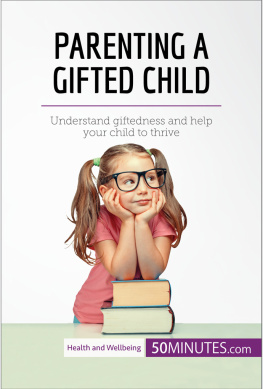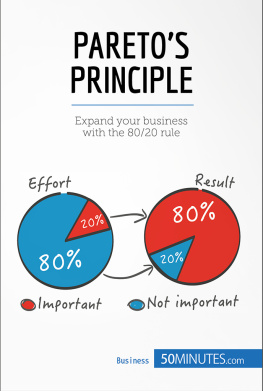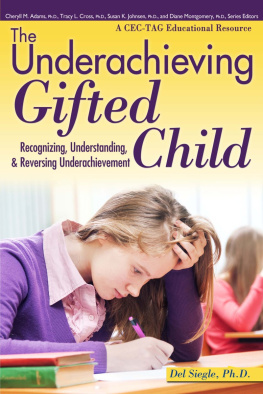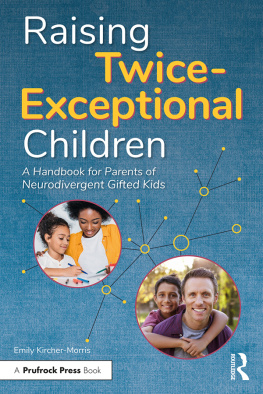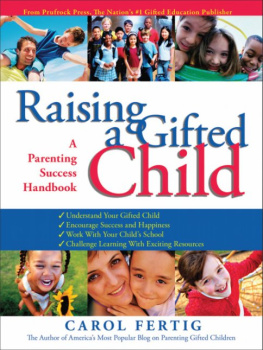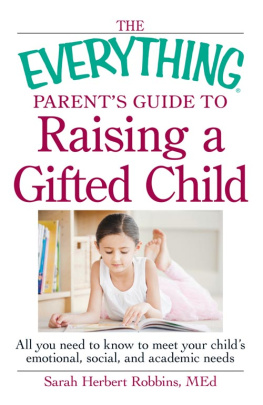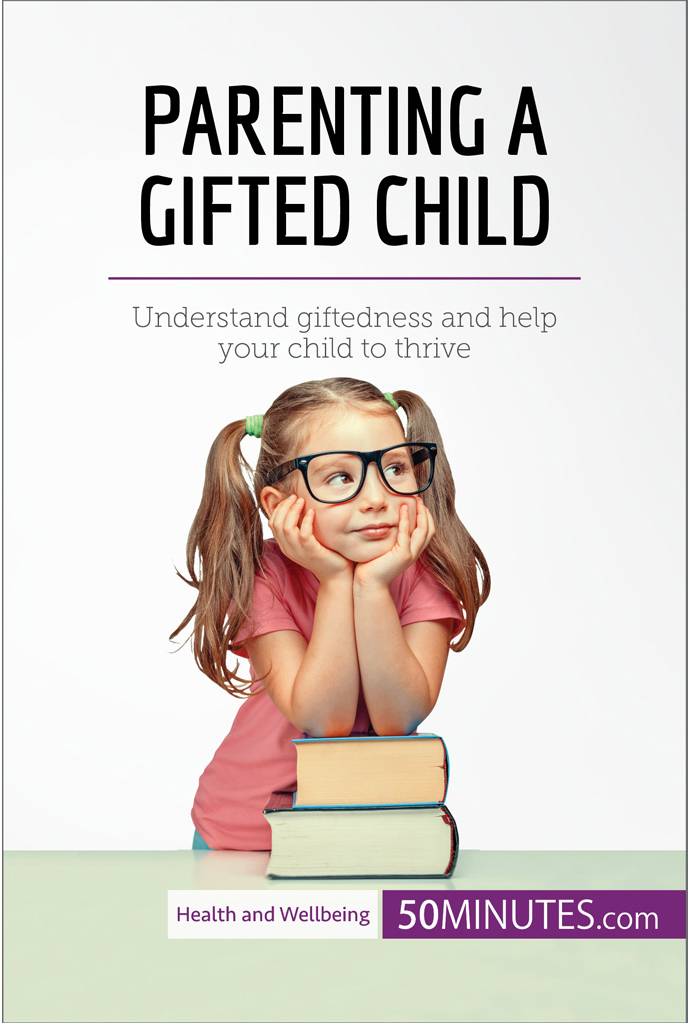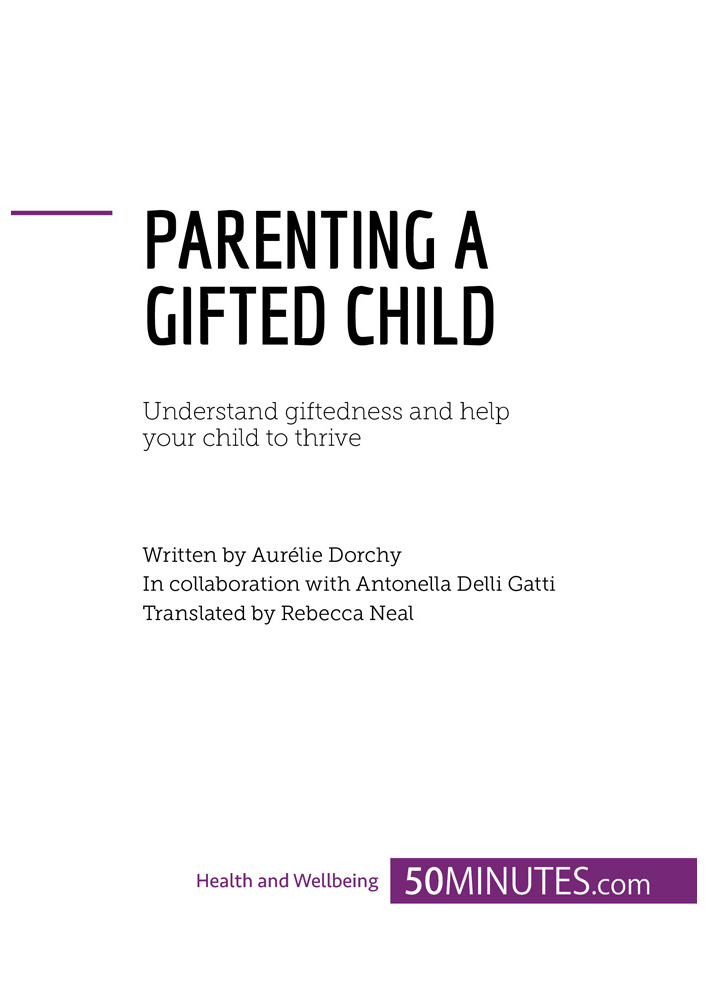Parenting a gifted child
Understand your child and help them thrive
- Problem: it is tempting to think that having a gifted child will make your life easier, but often this could not be further from the truth. With this in mind, how can you resolve the range of problems facing gifted children and those around them?
- Aims: to understand giftedness in order to support your gifted child at home and at school so that they can make the most of their talents.
- FAQs:
The term gifted refers to individuals whose intellectual abilities are far above the norm, although there is no single fixed definition of giftedness and definitions of the phenomenon vary between cultures.
Whatever definition is used, gifted children often struggle with the fact that some people expect them to be an all-knowing genius because of their abilities, in line with common preconceptions and images in the media and some films ( A Beautiful Mind , 2001; Pawn Sacrifice , 2014; The Tournament , 2015).
However, the reality is far more nuanced than this simplistic assumption. Giftedness is much more than an IQ (intelligence quotient) of above 130: it is also a range of emotional and behavioural traits that set gifted children apart from their peers. Gifted children tend to feel more intensely and work differently, which can have a significant effect on all aspects of their lives, not least on their relationships with others.
If you think that your child might be gifted, or if they have already been classified as gifted, you probably have a lot of questions or are unsure how best to support their education.
The challenges of raising a gifted child include answering their existential questions, finding a school that can accommodate their particular needs, dealing with the fear of being seen as arrogant or pretentious by other parents, and handling jealousy from their siblings.
Learning more about giftedness and the tools at your disposal will enable you to tailor your childs education to their abilities and provide them with the best possible guidance throughout their childhood and teenage years. This will allow them to feel supported, fit in with their peers and make the most of their potential.
What is giftedness?
A series of differences
While every child is different, with their own personality, favourite games and struggles, so-called gifted children have a number of distinctive characteristics that you should be able to observe in your child. In this section, we will examine these characteristics.
If you believe that your child may be gifted and they display at least three of the following characteristics, you should look into the matter further. However, you should exercise caution when analysing these indicators, as the presence of one of them does not necessarily mean that your child is gifted.
With very young gifted children, parents will often get the impression that they are struggling to keep up with their child rather than the other way around. The child will frequently try to direct their parents attention to their surroundings by asking questions that may seem disconcerting for their age.
Gifted children tend to be drawn to many different activities and switch between them rapidly, not because they have a short attention span but because they want to explore and because of their particular way of thinking: one idea quickly leads to another and they make connections that not everyone can see. They are very lively and observant and have trouble sleeping. They typically start talking very early (or at a later age than usual, but at a high level) and walking earlier than the average age (specifically, they may start walking at around a year old and talking before the age of two).
Later on, the intensity of your childs emotions and the level of sensory stimulation they experience may be surprising to you. For example, a gifted child may find sounds that other people consider normal to be too loud. They are also likely to notice more details and try much harder to understand their surroundings by touching objects or memorising smells that other people miss.
Their senses are so acute that they may hate the feeling of certain materials. Furthermore, situations that seem perfectly normal to you may be much more challenging for your child, who feels things more intensely than their peers, and they may seem to overreact to minor issues, such as a smell that is bothering them or a piece of clothing that is too tight. However, this is simply because gifted children tend to experience a lot of strong emotions.
You may also have noticed that your child is very empathetic and has a keen sense of fairness. Somewhat more uncomfortably, they may pepper you with existential questions that you would rather avoid answering.
Gifted children are quick to learn new things and develop a wide vocabulary at a young age. They tend to be very curious, take an interest in a wide range of subjects at the same time and think very quickly. One of the hallmarks of gifted children is that they can answer questions, but cannot explain the thought process they used to arrive at their answer, so it is clear that they are predominantly guided by their intuition.
Another specific feature of gifted children is their nonlinear way of thinking. But what does this mean? Most peoples thoughts follow on from each other in a logical progression, but nonlinear thinkers follow analogical reasoning. In practice, this means that when a gifted child is thinking, they move rapidly from one subject to another based on an element of comparison, a similarity or a relationship, no matter how tenuous, between different objects or concepts, which means that they can end up a long way from the thing they were thinking about to start with. Furthermore, several different ideas can come to them spontaneously and at the same time, with one idea inspiring a whole series of related ideas, and it may be difficult for others to see the links between them.
These two different ways of thinking can be seen in the diagrams below.
- The first diagram allows us to visualise a normal thought process. A person thinks about the fact that they need to find someone to look after their dog. They then search directly for a solution and think about what they should do.
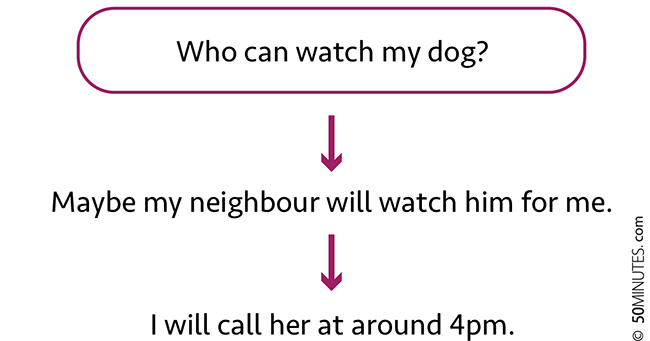
- The second diagram represents nonlinear thinking. The initial question is the same as in the first diagram but, by a process of analogy, it inspires a range of other thoughts that appear at the same time. The thoughts develop in all directions, but there is always a link to the original question, although this link will not necessarily be immediately clear.

As you may have found out for yourself, gifted children can be difficult to keep up with! As well as thinking in a particular way, they may also feel that they are out of sync with their peers and constantly try to adapt to the people around them.

